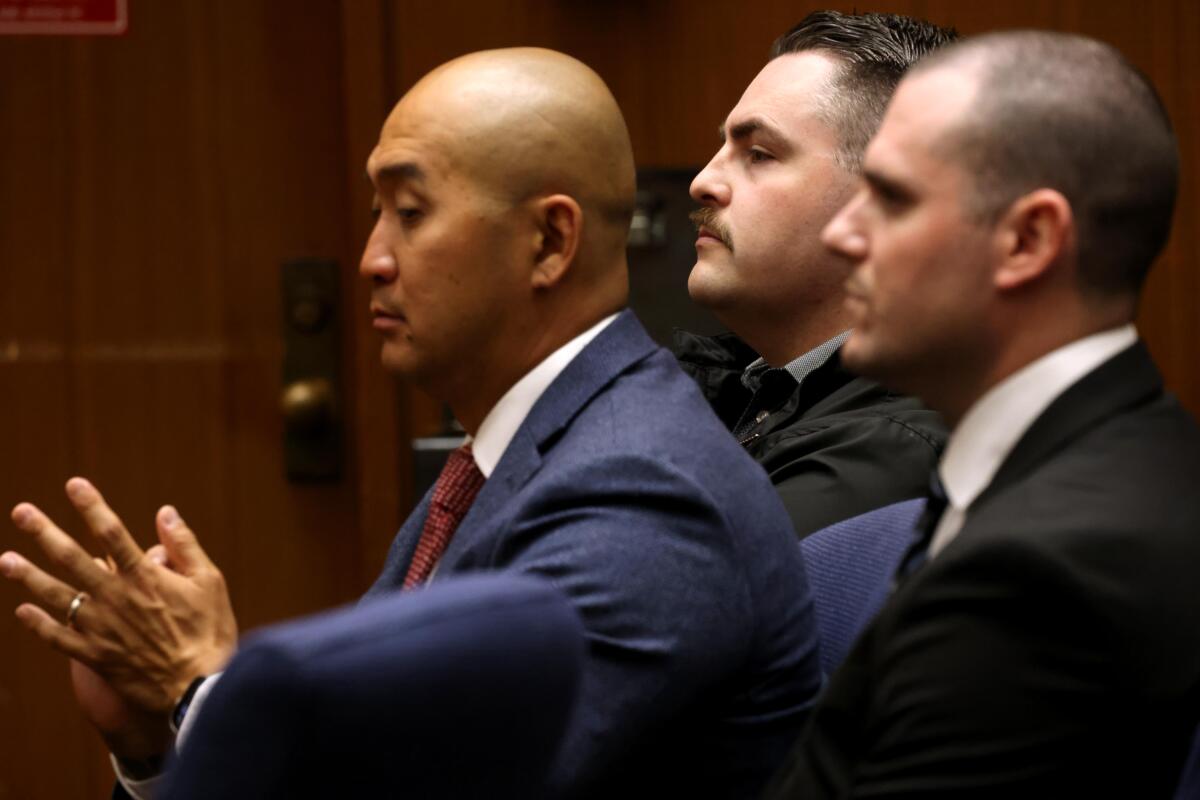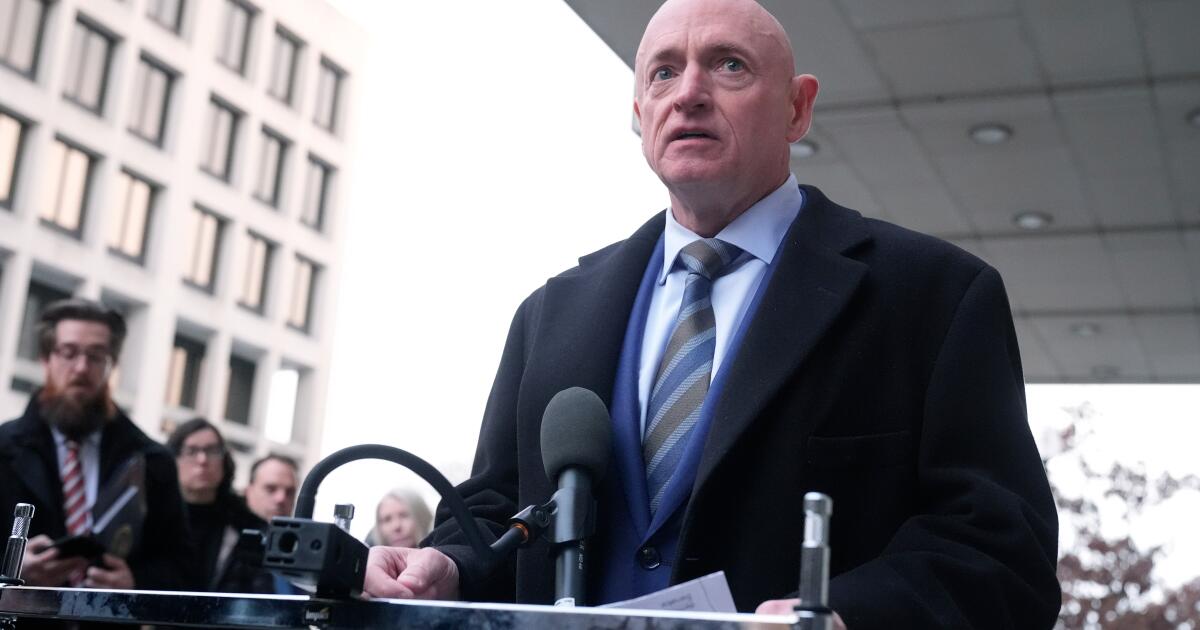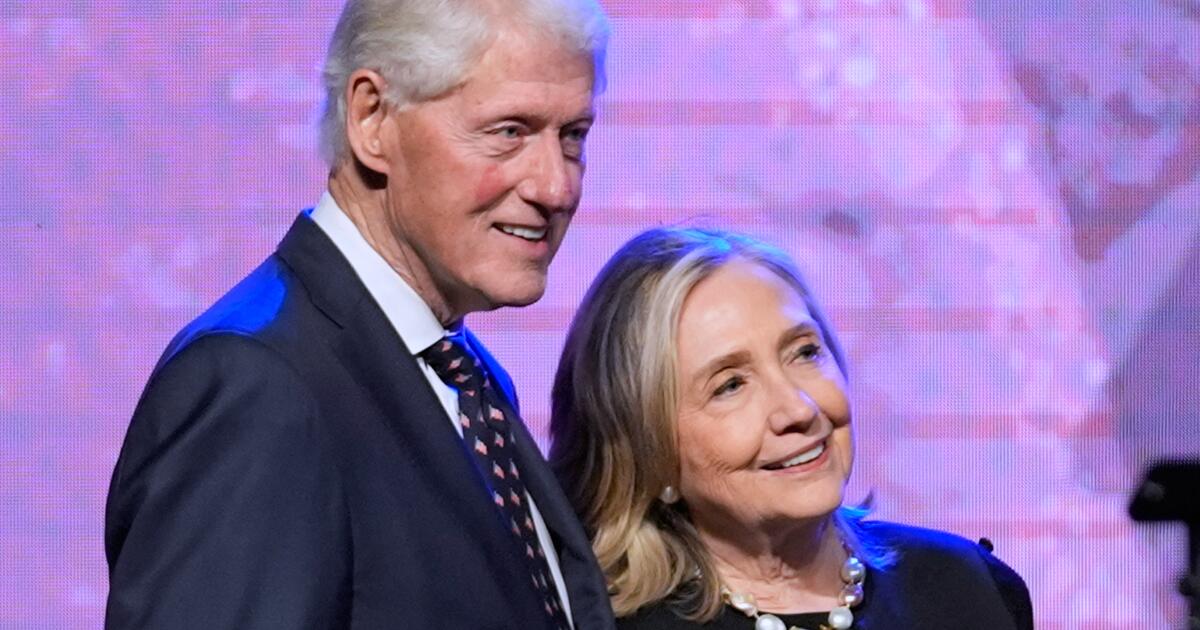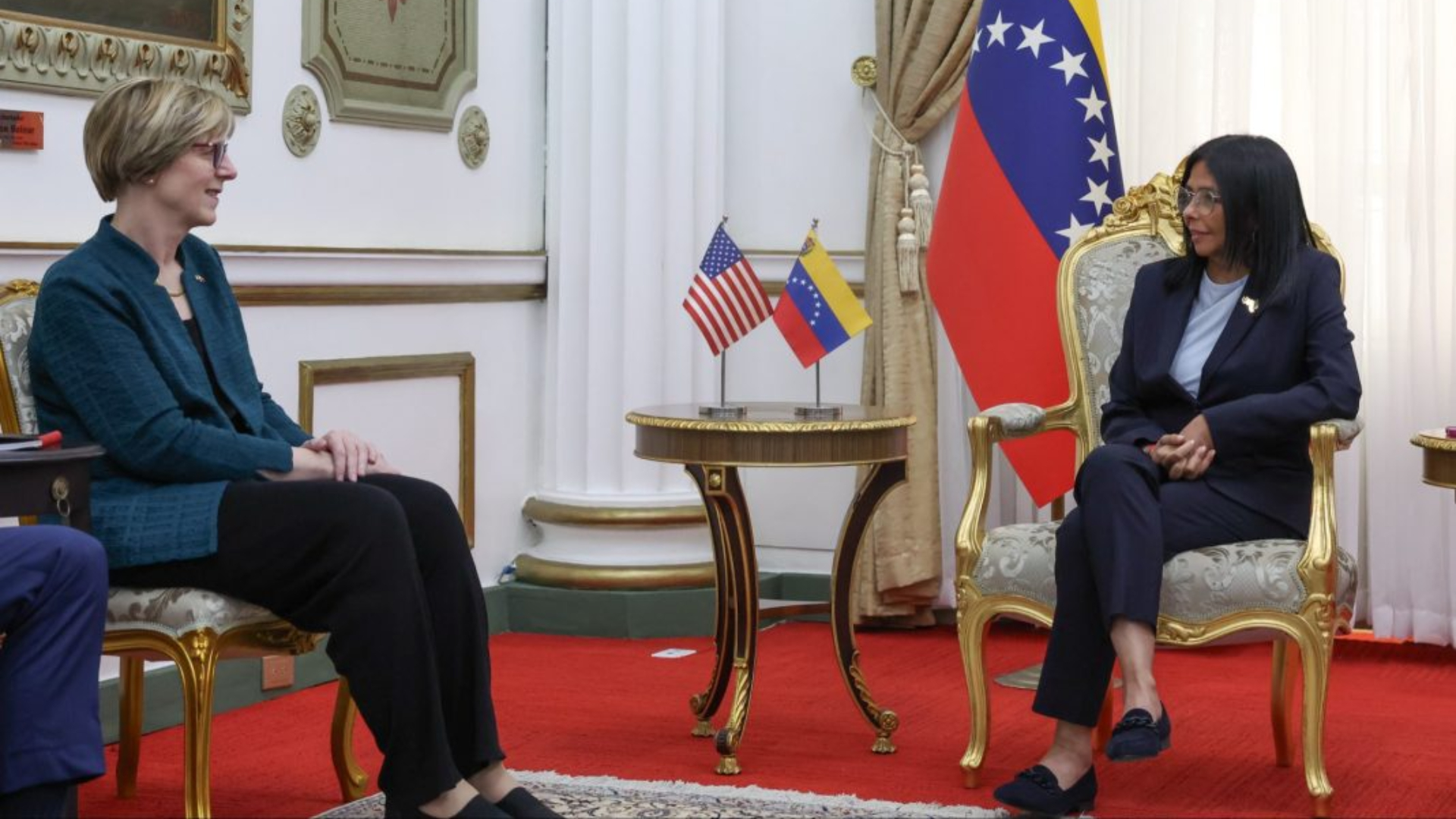WASHINGTON — When Rep. John D. Dingell was new to Congress, Buddy Holly ruled the charts, Rosa Parks refused to budge from her seat on a segregated bus and Dwight D. Eisenhower occupied the White House.
And on Capitol Hill, congressional committee chairmen ruled like feudal lords over federal policy, pursuing pet causes and waging vendettas with near impunity.
In time, Dingell became one of the most fearsome.
Now Dingell, the longest-serving member of the House, and other veteran Democrats are poised to take charge of the most powerful committees when Congress convenes in January.
In the four decades that Democrats were the dominant party, chairmen’s foibles, however egregious, did not threaten the party’s grip on power. But with narrower margins of control and an electorate willing to switch allegiances, there is no such assumption these days.
The question now is whether the “old bulls” like Dingell know it, and if they know it, whether they can adjust.
“This majority is not the kind of majority that we used to have, and it remains to be seen whether they understand that,” said one senior Democratic staffer, who spoke on condition of anonymity because of the sensitivity of the issue.
Building an empire
For 14 years, Dingell, a Michigan Democrat, presided over the Energy and Commerce Committee. Under his forceful and often uncompromising leadership, the panel expanded into an empire that famously claimed jurisdiction over “everything that moves, burns or is sold” in the United States.
It was in part because of the reputation of longtime chairmen like Dingell that former Speaker Newt Gingrich, who led the Republican insurgency that took control of Congress in 1995, imposed term limits for committee chairs, restricting them to three consecutive two-year terms.
But the Democrats have kept the tradition of assigning committee chairmanships by seniority. And that will elevate some of the most veteran — and oldest — members of Congress to committee leadership posts.
All but one of the new Senate chairmen are at least 60, and three are in their 80s. Three also have served for more than four decades.
The oldest is Sen. Robert C. Byrd (D-W.Va.), who is 89 and is about to retake the helm of the Senate Appropriations Committee. He sometimes tires, aides say, but he still has full command of his senses and the respect of his peers.
It is in the House, however, where the phenomenon has attracted more attention. That’s partly because Democrats have been shut out of power for 12 years, while their Senate colleagues have been in the minority for just four. And it’s partly because of the irascible personalities of some of the incoming chairmen, known collectively as the “old bulls.”
The three best-known are Dingell, Rep. John Conyers Jr. from a neighboring district in Michigan, and Rep. Charles B. Rangel of New York. They are 80, 77, and 76 years old, respectively.
No green bananas
About two-thirds of the incoming House chairmen are older than 60.
“I don’t buy green bananas,” Rangel quipped recently, referring to his age.
Conyers, who served on the panels that considered the impeachment of Presidents Nixon and Clinton and who has mused about the possibility of impeaching the current president, is expected to take the helm of the Judiciary Committee.
Rangel, one of the most outspoken members of Congress, is set to lead the Ways and Means Committee, which sets tax policy.
On Capitol Hill, staffers trade stories about the old bulls and their infirmities, shaking their heads over Dingell’s hearing problems or Conyers’ “senior moments.” But the same staffers insist that the incoming chairmen are not only capable of taking the reins, but of handling them better than anyone else.
“There is a lot to the concept of seniority,” said Jeremy Mayer, who studies Congress at George Mason University in Virginia.
“Should the people who have been in Congress the longest have the most power? The simple answer is yes, because they have more experience and they can’t be steamrolled by the administration. Dingell, for instance, knows all the intricacies of the funding of at least seven federal agencies.”
Another argument in favor of seniority is that it limits intraparty fighting.
The party leadership elections this month illustrated how divisive competition for leadership posts can be. A rigid, impersonal system for naming chairmen is one way to keep the peace.
“Seniority has always been a way to prevent bloodshed,” Mayer said.
The downside is that it can foster autocratic behavior. In the past, Democratic leaders found the chairmen hard to control, in part because their positions did not depend on the party, and the chairmen tended to outlast the leadership.
Steven Smith, a social sciences professor who studies government and political parties at Washington University in St. Louis, says political parties have evolved since then.
“Before the 1980s, committee chairs pretty much went their own way. But since the 1980s, chairs are expected to look out for the party’s overall interest,” he said. “There will be some tension between committee chairs and party leaders on this.”
One potential point of tension is that many of today’s old bulls are old-fashioned liberals. Dingell introduces a proposal for nationalized healthcare in every session of Congress. Conyers has used his staff to pursue favorite concerns of left-wing bloggers, such as voting irregularities in the 2004 elections.
By contrast, the freshman class of Democrats includes a number of centrist or conservative Democrats, many of them uncomfortable with liberal positions on such issues as abortion, gun control and same-sex marriage.
Democratic leaders have already set their sights on 2008, with the goal of regaining the White House and expanding their margin of control in Congress.
“Democrats know that they won this election by appealing to the middle of the spectrum,” Smith said. “And they know that the first rule is to do no harm, to not alienate the folks who gave them the election.”
Doing that will require the incoming House Speaker, Nancy Pelosi (D-San Francisco), herself a traditional liberal, to keep her chairmen focused on issues that promote the party’s broader agenda, not necessarily their own favorite issues.
“For some, it will take a little relearning,” said Smith. “They will have to make a choice: Do they want to start making a record for themselves and their party going into 2008? And what kind of record do they want it to be — a record of legislation, or a record of position-taking and rhetoric?”
Toeing the line
So far, the old bulls have stayed on message — mostly.
Conyers has stopped talking about impeaching President Bush.
Dingell has lauded the benefits of bipartisanship while promising tougher oversight of the administration.
And Rangel has remained coy about the fate of the tax cuts passed by Republicans in recent years, though he caused some heartburn when he brought up his desire to bring back the draft.
Democratic insiders say the old bulls won’t overreach. They say they know better than most what it’s like to gain and then lose a majority. And they haven’t been in a deep freeze for the last 12 years; rather, they’ve been strategizing with their colleagues about how to return to power.
Steve Elmendorf, who served as senior advisor to former Rep. Richard Gephardt, who led the Democrats in both the majority and the minority, says there are two big reasons why no one in the party even whispers about challenging the old bulls, no matter how old or intemperate.
“One, a lot of these chairman worked hard to help win. And when you win, the people who helped are going to move up,” Elmendorf said. “Two, they have a tremendous amount of institutional knowledge. They served in the majority, and they can hit the ground running.”
maura.reynolds@latimes.com
*
(BEGIN TEXT OF INFOBOX)
Likely chairmen
Democratic veterans in line to run key House committees:
John Conyers Jr.
Committee: Judiciary
Age: 77
First elected: 1964
District: Detroit area
Highlights: Conyers is the only Judiciary Committee member to serve during the impeachment hearings of Presidents Nixon and Clinton. He recently dropped calls for an investigation into whether President Bush should be impeached.
Quote: “The American people sent a clear message that they do not want a rubber-stamp Congress that simply signs off the president’s agenda.”
—
John D. Dingell
Committee: Energy and Commerce
Age: 80
First elected: 1955
District: southeastern Michigan
Highlights: The longest-serving congressman, Dingell ran Energy and Commerce for 14 years, expanding its reach to include two-fifths of all House bills. He oversaw the breakup of AT&T; and cable deregulation.
Quote: “We’re not after anybody,” Dingell said of his new power to subpoena Bush administration officials, but added that they will be “invited to come forward.”
—
Charles B. Rangel
Committee: Ways and Means
Age: 76
First elected: 1970
District: northern Manhattan
Highlights: As a member of Ways and Means, Rangel has worked for targeted federal tax credits to benefit impoverished urban communities, including New York City’s Harlem, his political power base for four decades.
Quote: “Since it appeared there would be a Democratic majority, I can’t tell you the number of pharmaceutical companies and health plans that have come to me and said we can work together to put together a plan to cover the 47 million uninsured.”

















